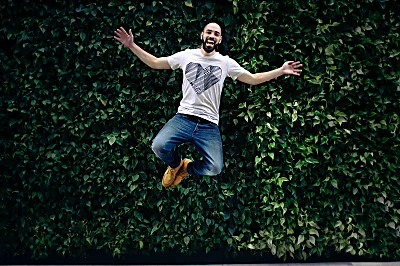 |
How a young hospital near the Gaza envelope became a model of agility, resilience, and quiet heroism amid war.
At 3 a.m. on a quiet Friday morning, June 13, Erez Barenboim’s phone sounded the alarm that brought Israel to a halt. The CEO of Assuta Ashdod Hospital barely had time to process the news: Israel had launched a historic strike on Iran.
Within the hour, Barenboim was at the hospital leading an emergency situational assessment, joined by doctors, nurses, administrators, and even staff who weren’t on call. “It felt a lot like October 7 all over again,” he says. “People showed up because they understood that if we were attacking Iran, Iran would fire back, and the hospital had to be ready.”

In contrast to numerous hospitals located in Israel's urban centers, Assuta Ashdod was constructed in 2017 with consideration for wartime scenarios. Its facilities feature some of the country's most secure delivery rooms and maternity surgical theaters, which have become a crucial resource for expectant mothers across Israel during emergencies.
After the Iran attack, the hospital experienced a surge in pregnant women escaping from vulnerable areas. “We’re built for Ashdod and the surrounding region,” Barenboim says, “but suddenly, we were seeing huge numbers. We had to respond quickly.” The hospital added 12 new beds to its maternity ward almost overnight. Following the ballistic missile assaults from Iran that hit Soroka Hospital, Assuta Ashdod immediately rose to the occasion, decided to build a new Internal medicine ward, and accepted numerous patients from there. In just 24 hours, they converted their corridor into a 32-bed ward. “And this,” Barenboim states, “is what agility means.”
And this, in fact, is what makes this hospital exceptional, Barenboim believes, isn’t just its reinforced walls or strategic location. It’s the spirit of the people inside. “You tell our staff what’s needed, and they adapt,” he says. “That agility, that’s what I’m proud of.” He credits Assuta’s parent organization, Maccabi Healthcare Services, with fostering a culture of creative, solution-oriented thinking. “It’s in our DNA,” he says. “When challenges come, we don’t just react - we build systems.”
One of those systems is a fully protected dialysis unit that operates 24/7, even under missile fire. “Dialysis patients can’t skip a session,” Barenboim explains. “So patients from all over Israel, even from the center, come to us. Without this treatment, they could suffer serious harm or die.” Meanwhile, cancer patients continue to receive their chemotherapy treatments without interruption. “Life doesn’t pause,” he says. “We operate around the clock because that’s what the moment demands.
Caring for their caregivers
When schools and daycares were shuttered during the conflict, many staff members with young children faced an impossible choice: stay home or go to work, worrying about their families. So Barenboim partnered with the Ashdod municipality to open alternative kindergartens and classrooms near the hospital. “We’re the first hospital in Israel doing this,” he says, "Over 100 kids come every day. For them, it’s like a summer camp. For us, it means our doctors and nurses can save lives without worrying.”It’s not just logistics; there’s also an emotional toll. Barenboim and his leadership team conduct regular mental health check-ins, encourage open dialogue, and offer psychological support. “You can’t ask people to care for others if they themselves don’t feel cared for,” he says.
That philosophy runs deep. Following the trauma of October 7, the hospital invested in group sessions, resilience-building workshops, and even small morale boosters, such as handing out ice cream during long shifts. “Sometimes it’s the little things,” Barenboim says. “A smile, a thank-you, a sense of normalcy - that’s what gets you through.”
"The Bibas children were born here"
For many of Assuta Ashdod’s staff, the war isn’t abstract. Many live in the hard-hit Gaza border communities. And some of the hostages taken by Hamas on October 7 were once patients. “The Bibas children were born here,” Barenboim says softly, referring to Ariel and Kfir Bibas, the redheaded toddlers whose images became symbols of the hostage crisis.“We felt deeply connected to those redheaded kids. Their story hit hard.” After the children’s deaths were confirmed, the hospital opened a new pediatric lobby in their memory. “It was a defining moment,” Barenboim says. “It reminded us all why we do this.”
The next war, and the next hospital
Looking ahead, Barenboim knows the challenges aren’t over. He’s already pushing to expand the hospital, doubling its size, transforming underground parking floors into fortified wards, and advancing home hospitalization models that will let more patients be treated in their communities. “The Health Ministry’s directive to discharge patients earlier is, for me, an opportunity,” he says. “It’s a chance to advance home hospitalization, community-based care.”Israel’s population ages, he believes, the national health system must evolve. “The state won’t keep building more hospitals. Some treatments can and should move into the community.” “We learned a lot from COVID,” he adds. “We pioneered flexible wards that can grow or shrink based on isolation needs. Now we want to take that to the next level.”
He’s also advocating for greater state investment in infrastructure that can withstand next-generation threats. “Iran’s ballistic missiles are a different ballgame,” he notes. “Our current protective standards were designed for Hezbollah and Hamas. We need to think bigger.” But as always, he brings the conversation back to the people. “I don’t know where the next missile will fall,” he says. “But I know we’ll be ready. That’s our role. That’s our promise.”
A medal of resilience
When Barenboim became CEO in 2019, Assuta Ashdod was still a fledgling institution. In just five years, it has weathered COVID-19, mass casualty attacks, nationwide trauma, and now direct conflict with Iran. “If someone had told me this would be the job,” he says with a laugh, “I’d say we deserve a medal.”Perhaps the real medal is the one Assuta Ashdod quietly earns every day, through the lives it saves and the calm it restores, on Israel’s frontlines, and in the hearts of those who need it most.






No comments:
Post a Comment